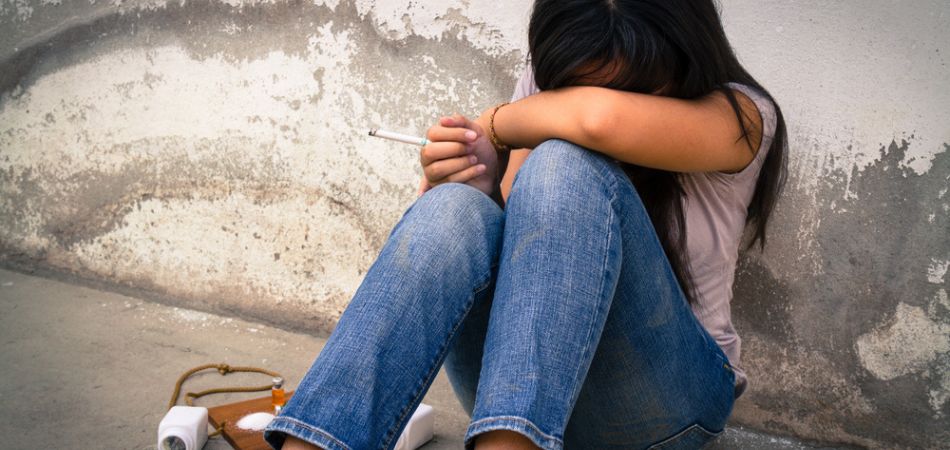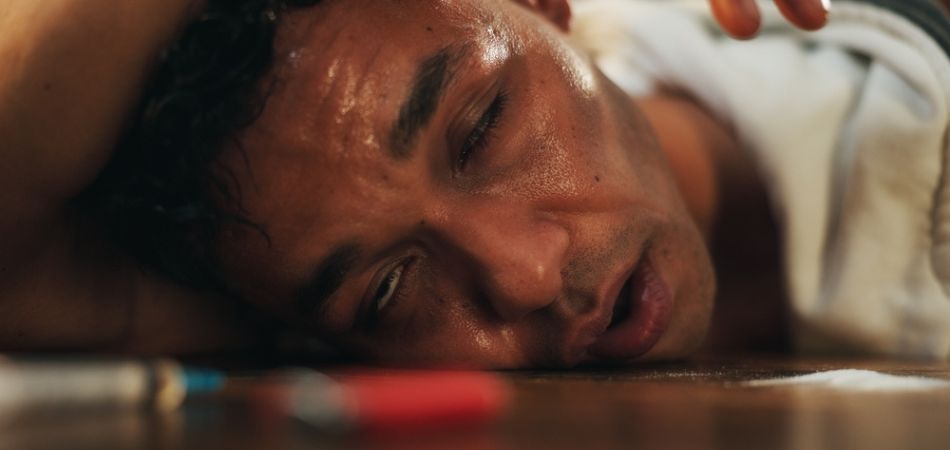Last Updated:
October 29th, 2025

Physical dependence and addiction are often spoken of as if they mean the same thing. In everyday conversation, the terms blur together, even among healthcare professionals.
Yet, the difference between them is critical, and misusing the terms can lead to stigma, misdiagnosis, and even unsafe treatment.
Dependence does not equate to addiction, and understanding the distinction can provide a way out if you or someone you know is battling either force.
Physical dependence vs addiction: What is the difference?
As a person strives to work their way out of addiction, they may hear some people use the terms “addiction” and “dependence” interchangeably. A loved one might use one term mistakenly, even when they mean well, and some research suggests that healthcare professionals might slip into using the wrong term for treatment.
Broadly speaking, someone living with an addiction finds it incredibly difficult to resist the urge to keep using a substance, or repeating behaviour, even when they know it’s causing them harm. By contrast, physical dependence does not always involve this loss of control. A person might not feel any strong compulsion to take a medication, yet their body has adapted to it so strongly that sudden cessation brings on withdrawal symptoms.
Distinctions between the two terms matter, and understanding the difference between addiction and dependence could make the difference between a person’s successful recovery and their potential relapse.
What is physical dependence?
Physical dependence refers to the body’s adaptation to a substance when it’s taken over a period of time. Physical dependence doesn’t necessarily mean a person is addicted, but it does mean that suddenly stopping a drug can trigger unpleasant or even dangerous withdrawal effects.
The pharmacological definition
The pharmacology textbook, Goodman and Gilman’s The Pharmacological Basis of Therapeutics, makes the point that the clearest evidence of physical dependence is when withdrawal symptoms appear after the drug is stopped. Crucially, a substance doesn’t need to make someone feel euphoric or any “high” for this to happen. Dependence is simply the body’s way of maintaining balance, and once it has adapted to the regular presence of a drug, it reacts when that drug is suddenly taken away.
Examples of dependence
Many substances, both legal and illegal, can lead someone into physical dependence. Some examples of substances that cause dependence include:
- Nicotine
- Beta-blockers
- Antidepressants
- Benzodiazepines
Even everyday substances like caffeine can cause dependence, as a person suffers headaches and fatigue without it in the morning. Examples of physical dependence highlight how common it is as a biological response, not always linked to misuse or addiction.
What is an addiction?
Addiction is a treatable, chronic medical condition, defined by cravings, compulsive use, and difficulty stopping even when harm is clear. Clinicians use the term substance use disorder to describe this spectrum, which can be mild, moderate or severe.
An addicted person returns to substance use through powerful cravings and lost control. Common signs of addiction include cravings, compulsive behaviour, and difficulty stopping substance use despite the harm it causes. Unlike dependence, which is mostly about the body’s reaction, addiction affects both mind and behaviour.
Substances most associated with addiction
Addiction can develop around many different substances. The most common substances in addiction include:
- Alcohol
- Opioids
- Heroin
- Inhalants
- Cocaine
The effects of these substances alter the brain’s reward system and reinforce cycles of compulsive use.
Behavioural addictions
As research into addiction and treatment has expanded, it is noted that addictions aren’t confined to just drugs or alcohol. Behavioural addictions can become just as consuming and difficult to escape, some of which include:
- Gambling disorder
- Video game addiction
- Sex and pornography addiction
Some behavioural addictions are debated within clinical communities, but they reflect how addiction can extend far beyond substances.
Why is it so crucial to see the difference?
Being unable to distinguish between dependence and addiction can have real-world consequences for a person with a substance use disorder, as well as having a rippling effect on loved ones, friends and families.
- Risks of misdiagnosis: Someone tapering off prescribed medication might show withdrawal symptoms and be wrongly labelled “addicted,” resulting in inappropriate referrals.
- Safe treatment and tapering: Dependence often requires careful tapering, not intensive psychological intervention. Recognising this difference means a person can get safe, accurate medical care.
- Stigma around prescribed drug dependence: Antidepressants and other CNS medications can create physical dependence without addiction. Misusing the term might make someone feel shame and discourage them from getting help when they struggle with withdrawal.
What steps can I take if I’m affected by dependence or addiction?
Living with substance dependence or addiction can be terrifying, yet there are practical steps you can take to protect your health and find the right support, which include:
I need to talk to someone about addiction ruining my life
If dependence or addiction is pulling your life off course, it’s important to know you’re not alone and that help is available.
At UKAT, we specialise in medically assisted detox and evidence-based therapies that address both the physical and psychological aspects of recovery. Our aftercare systems are in place to keep you supported and prevent relapse, no matter how strong the urge.
Our team works with you and your loved ones to help you take steps into a brighter future, one that is free from the confines of addiction. Contact us today and start your journey towards the sober future you desire.
(Click here to see works cited)
- Szalavitz M, Rigg KK, Wakeman SE. Drug dependence is not addiction-and it matters. Ann Med. 2021 Dec;53(1):1989-1992. doi: 10.1080/07853890.2021.1995623. PMID: 34751058; PMCID: PMC8583742.
- Goodman & Gilman’s: The Pharmacological Basis of Therapeutics, 14th Edition | Accessmedicine | Mcgraw Hill Medical, accessmedicine.mhmedical.com/book.aspx?bookID=3191




